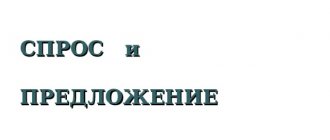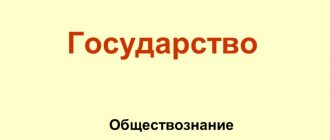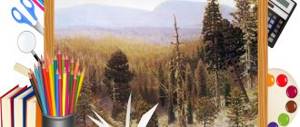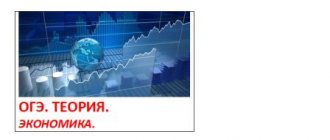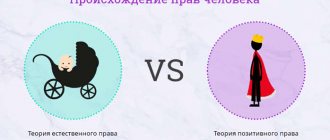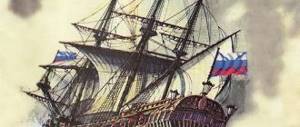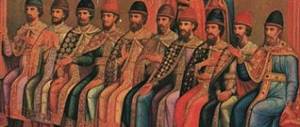Part 1
1. Government bodies in the structure of the economy perform the functions
1) production 2) distribution 3) exchange 4) consumption
2. Are the following statements about government debt correct?
A. Ways to solve the problem of public debt include reducing budget expenditures. B. Ways to solve the problem of public debt include borrowing money from foreign countries.
1) only A is true 2) only B is true 3) both judgments are correct 4) both judgments are incorrect
3. A situation in which the necessary government expenditures are greater than possible revenues is called
1) budget surplus 2) budget deficit 3) inflation 4) competition
4. A situation in which state budget revenues are less than expected expenses is called
1) positive balance 2) budget surplus 3) budget deficit 4) balanced budget
5. Does not include in the budget system of the Russian Federation
1) federal budget of the Russian Federation 2) budgets of constituent entities of the Russian Federation 3) budgets of municipalities 4) budgets of joint-stock enterprises
6. The state budget of the Russian Federation is adopted
1) President of the Russian Federation 2) Government of the Russian Federation 3) Federal Assembly of the Russian Federation 4) Minister of Finance
7. A situation in which revenues in the state budget are approximately equal to expenses is called
1) positive balance 2) surplus 3) deficit 4) balanced budget
8. Are the following statements about the impact of the state on the economy correct?
A. The state influences economic relations through taxation. B. The state influences economic relations through the monetary system.
1) only A is true 2) only B is true 3) both judgments are correct 4) both judgments are incorrect
9. The state influences economic relations through
1) legal regulation 2) taxation 3) monetary system 4) all of the above
10. A situation in which government budget revenues exceed expenditures is called
1) negative balance 2) budget deficit 3) budget surplus 4) balanced budget
check yourself
How can you characterize a person's place in the world?
A person is the smallest part of society, an individual. He lives with other people and all these people together make up society. This means that man is the basis of society.
Why is family a very important part of society?
A family unites people who are closest to each other, who live together and run the household together. And each person belongs to a family, and society as a whole consists of all families.
How many peoples live on Earth?
About 4 thousand different peoples, large and small, live on earth.
How many states are there on Earth?
There are about 200 different states on Earth.
List what any state has. Find some of these signs on the map.
Any state has its own territory, borders, capital, language. Any state has its own symbols, flag, coat of arms, anthem. Every state has a head. Each state has a name.
On the map we see the state of Russia. It has its own territory, has its own borders, and has a capital - the city of Moscow. These signs are shown on the map.
Part 2
1. Find in the list given the methods of direct regulation by the state of the economic sphere and write down the numbers under which they are indicated in the answer line.
1) taxation 2) adoption of laws 3) expansion of government orders 4) budget policy 5) development of the public sector
2. Below is a list of terms. All of them, with the exception of one, characterize the concept of securities .
Shares, bonds, money, promissory note, privatization check.
Find and indicate a term that refers to another concept.
3. The activities of the state in the field of taxation, regulation of public expenditures and the state budget are called __________.
4. Read the text below, in which a number of words are missing. Select from the list provided the words that need to be inserted in place of the gaps.
The most important economic functions of the state as the main institution of the political system of society include:
1) the formation of an effective economic __________(A) state, influencing the course of economic processes in the country in order to increase the well-being of citizens and prevent economic crises; 2) regulation of the country's monetary system; 3) development and protection of the __________(B) mechanism and prevention of negative consequences of __________(C); 4) protection and protection of all types of __________(D); 5) regulation in the country __________(D); 6) protection of the interests of __________(E) and control over the quality of goods and services; 7) control over the sphere of foreign trade, protection of the country’s economic interests in international relations, ensuring the country’s successful integration into the world economy, etc.
The words in the list are given in the nominative case. Each word (phrase) can be used only once. Select one word after another, mentally filling in each gap. Please note that there are more words in the list than you will need to fill in the blanks.
List of terms:
1) monopolism 2) competition 3) politics 4) property 5) labor relations 6) consumer 7) entrepreneur
Write down the number of the word you chose under each letter.
Lesson summary on the surrounding world on the topic What is a state
Topic: What is a state.
The Constitution is the fundamental law of our country. Child's rights.
Goal: To become familiar with the concept of “state”. Familiarization with the modern state structure of Russia.
Familiarization with the basic law of the state - the Constitution. Familiarization with children's rights.
Characteristics of student activities:
Cognitive. Briefly describe the government structure of the Russian Federation
Personal. Sustained interest in studying nature, man, and the history of the country.
Feeling responsible for doing your part of the job when working in a group.
Regulatory. Find the necessary information in the textbook and reference literature. Understand information presented in the form of text, diagrams, tables.
During the classes:
- Organizing time.
Slide 1 “History is a lantern that was lit in the past, burns in the present and lights the way to the future” V. Klyuchevsky
— Today in class we will come into contact with the history of our people. My Russia has long braids, My Russia has light eyelashes. My Russia has blue eyes. Russia, you are very similar to me.
- Updating students' knowledge. Setting a learning task.
- Working with proverbs and sayings
- How do you understand the meaning of these proverbs? 1. The Holy Russian land is great, and the sun is everywhere. 2. Every bird loves its nest. 3. Everyone has their own side. 4. Where someone was born, that’s where they came in handy. 5. The bird that doesn’t like its nest is stupid. 6. Houses and walls help. 7. Homeland is more beautiful than the sun, more valuable than gold. 8. The native side is the mother, the alien side is the stepmother. 9. A man without a homeland is like a nightingale without a song. 10. Motherland is a mother, know how to stand up for her. Are you ready to work? (Yes!) Are you ready to answer? (Yes!) Are you ready, if necessary, to remember and learn something? (Yes!) Well, and most importantly, are you ready to reason today? (Yes!) - Well, since you are ready for work, then we will talk about a very important topic that concerns each of you: the State and the rights of children. Your job is to learn as much as possible about your rights and how you can protect them.
- A warm-up game will help you remember what country you live in:
I see wonderful freedom, I see cornfields and fields. This is Russian expanse, This is Russian land! I hear the songs of the lark, I hear the trills of the nightingale. This is the Russian side, This is my Motherland! — What is the name of our Motherland? (Russia) — What is the full name of the state? (Russian Federation)
- Guess the rebus and then you can read the phrase:
Slide 2
Key to the puzzle: The capital of Russia is Moscow. — Let's continue talking about our Motherland. Our state is called the Russian Federation. How does one state differ from another? (Students' answers.) - Indeed, the state has its own language, which its people speak, its own symbols, its own history, traditions, geographical location, its own customs. 3. Select images of Russian symbols: flag, coat of arms.
Slide 3
- Having guessed the riddle, you will find out which tree is the symbol of Russia:
A Russian beauty stands in a clearing, wearing a green blouse and a white sundress (birch)
- Work on the topic.
1. Acquaintance with the article in the textbook “What is a state.”
Page 96 - 100 - Remember what the basic law of our state is called. (Constitution) 2. Reading an article in the textbook “The Constitution is the fundamental law of the country.” Page 101 - 103 3. Clarification and addition of children’s knowledge about their rights. - Guys, now you remember what country you live in. Russia is a rule of law state. - Who will explain what this means? — Our state lives by laws that protect the rights of all its citizens, regardless of age, nationality, gender. In Russia, all citizens have equal rights. Every child from the moment of birth is taken under the protection of the state, which means that children also have rights that no one can violate. How do you understand what human rights and children’s rights are? That’s right, this is the most valuable thing a person has, which gives him the opportunity to live a full, happy life, to be alive and healthy, to develop, to express himself. - Who knows what rights children have? Let's look at the illustrations and talk about the basic rights of the child in our state: Slides 4 - 8 1. The right to life. 2. The right to a first name, patronymic and last name.
3. The right to live and be raised in a family.
4. Right to education.
5. Right to medical care.
6. The right to protect your rights.
7. The right to nutritious food and an acceptable lifestyle.
8. The right to rest and leisure. - All these rights are written in the laws, which means that no one can violate them or take them away from you. A person who violates your rights commits a crime and is responsible to the state. What are these laws that provide you guys with your rights? There are many such laws and they have been adopted not only in our country, but also in other countries of the world. The very first law protecting the rights of children was the Convention on the Rights of the Child. It was adopted on November 20, 1989 by the governments of 170 countries. The whole world, including Russia, is subject to this law. Other laws guaranteeing the rights of the child in our country:
- Constitution of the Russian Federation;
- Family Code of the Russian Federation;
- Federal Law “On Basic Guarantees of the Rights of the Child in the Russian Federation”;
Federal Law “On Education”.
V. Consolidation.
It turns out that people did not always have rights in Russia, and in other countries as well. It was like that a long time ago, in the old days. Slaves and captives who lived in the states of ancient Europe, black slaves of America, and serf peasants of old Russia did not have any rights. Slide 9 How it was told to us by the writer Sergei Alekseev in the story “The Story of a Serf Boy” (you can take A.P. Chekhov’s story “Vanka”). — Tell us about your impressions. - Why did you feel sorry for Mitka? — What rights of the child were violated and by whom? — Is such a situation possible in our time, why?
VI. Conclusion game
Every citizen of Russia has not only rights, but also responsibilities. You shouldn’t forget about your responsibilities either. Listen to the poems. What responsibilities have children forgotten? 1. E. Uspensky “Destruction” Mom comes home from work, Mom takes off her boots, Mom comes into the house, Mom looks around. — Was there a raid on the apartment? - No. — Did a hippopotamus come to see us? - No. - Maybe the house is not ours? - Our. - Maybe not our floor? - Our. Seryozhka just came and we played a little. - So this is not a collapse? - No. - So the elephant didn’t dance? - No. - I am very happy. It turned out that I was worrying in vain. 2. Lidia Ogurtsova “Fight” I can’t live a day without bumps and scratches. I have a father’s character - a fight comes out of me. For five minutes I sat quietly, Drawing people, houses... Only the fight, whistling dashingly, Came out on its own again! 3. Elena Stekvashova “Liar” There was one time - I broke a cup, I blamed everything on my brother Sashka. Only my mother somehow didn’t immediately believe the story. I didn’t get it for a cup - for the offended Sashka. 4. S. Marshak “About one student and six units.” Excerpt A student came home from school and locked his diary in a box. Where is your diary? - asked the mother. I had to show her the diary. The mother couldn’t help but sigh when she saw the inscription: “Very bad.” Having learned that his son was such a lazy person, the Father exclaimed: “You're a naughty boy!”
